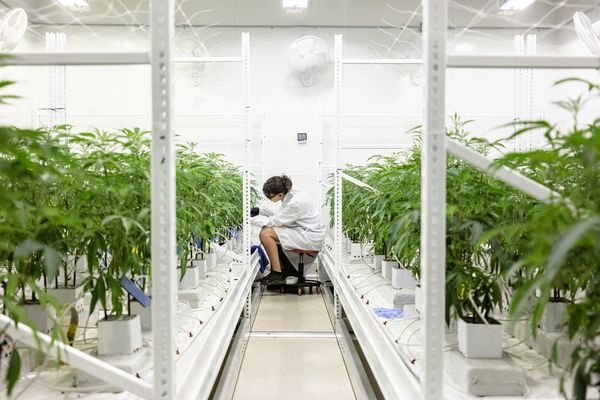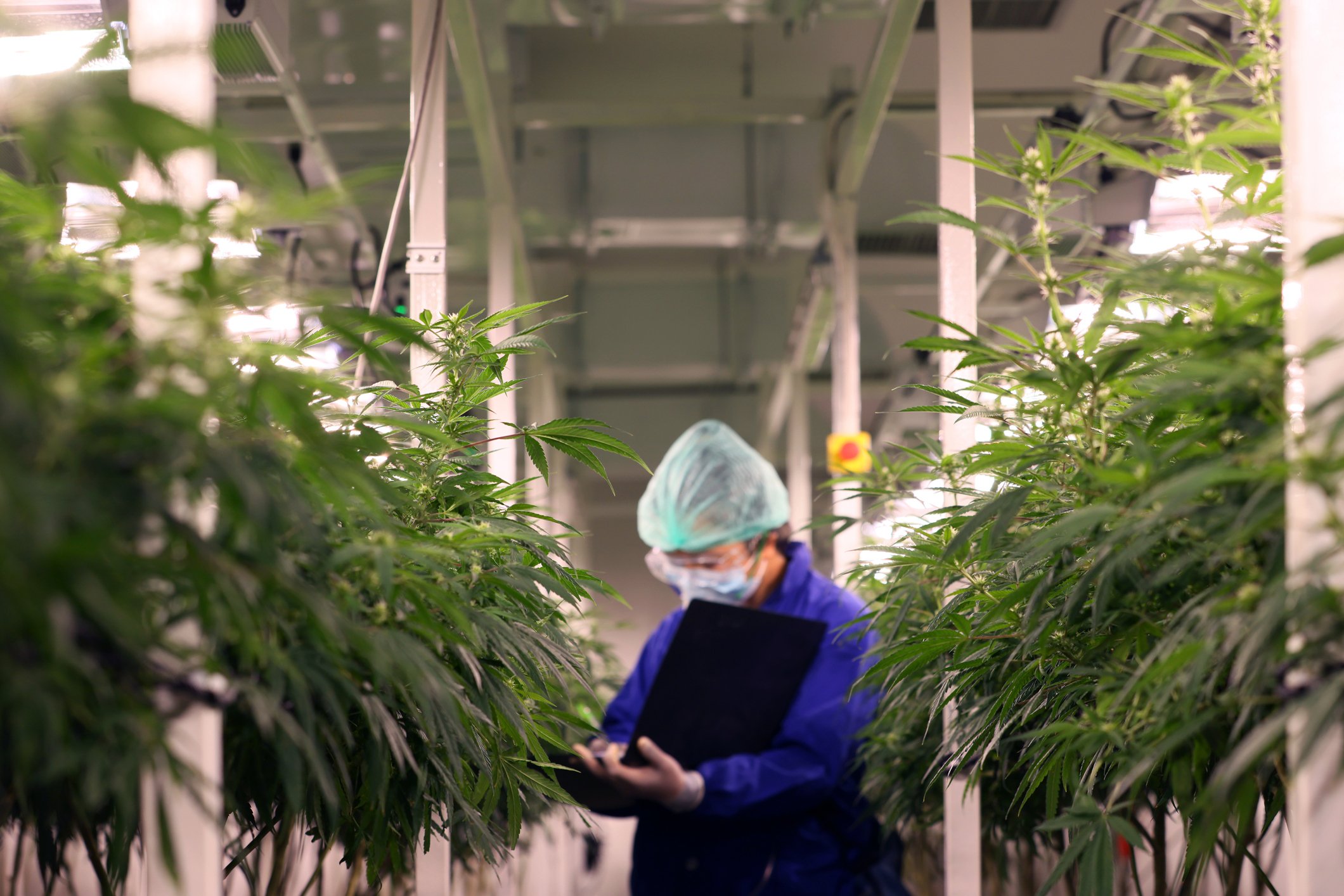To many on Wall Street, the legalization of marijuana represents one of the greatest growth opportunities over the next decade, and perhaps beyond. This is an industry with an enormous amount of sales being conducted in the black market each year. If that revenue is steadily shifted to legal channels, sales could hit as high as $200 billion annually in a decade.
Dividends are, and will remain, a rarity in the cannabis industry
But as the old saying goes, "You have to spend money to make money." And, boy, has the marijuana industry been spending money. Throughout North America, cannabis companies have been aggressively acquiring complementary businesses, expanding their cultivation capacity, and diversifying their product portfolios. The latter is especially true for Canadian pot stocks, with the launch of derivative products coming in less than three months.

Image source: Getty Images.
But one thing you're typically not going to get with a cannabis stock is a dividend. For starters, companies almost always have to be profitable on a recurring basis before they're going to offer a regular quarterly or annual stipend to their shareholders. At the moment, you only need a few fingers to count how many marijuana pure-plays are profitable on a recurring basis.
Another factor at work here is that growth dictates reinvestment and not the return of capital, for the time being. In fast-growing nascent industries like cannabis, it makes little sense for businesses to not put their capital to work by gobbling up as much market share as possible. Returning capital is something that highly profitable businesses reserve for when their industry is time-tested, and when the initial growth surge has been firmly put in the rearview mirror. When it comes to marijuana, we could see surging sales for a decade, if not longer. Thus, it makes more sense for pot stocks to reinvest their operating cash flow and profits rather than pay it out in the form of a dividend.
Keep in mind that there are ancillary cannabis stocks that do pay a dividend, such as tobacco company Altria and alcohol and spirits giant Constellation Brands.
But when it comes to pure-play pot stocks, one company stands alone in the dividend department: Innovative Industrial Properties (IIPR +0.25%).
Now that's what I call dividend growth
The week before last, on Sept. 13, Innovative Industrial Properties announced that it would pay a third-quarter dividend of $0.78 per share, thereby upping its annualized yield to 3.2%. That's a 30% sequential quarterly increase from its $0.60 second-quarter dividend, a 123% increase from the $0.35 the company paid out per share in the year-ago quarter, and a 420% uptick from the $0.15 quarterly dividend two years ago. And trust me, no humor is lost on the fact that this is a 420% payout hike -- "420" being a term used in cannabis culture to describe the consumption of marijuana.
How does Innovative Industrial do it when most other marijuana pure-plays can't even turn a profit? The answer can be found in the company's business model.

Image source: Getty Images.
Innovative Industrial Properties is a cannabis real estate investment trust (REIT). REITs are companies that acquire land and property within a specific industry or sector, then seek to lease out these assets for an extended period of time. In return, they reap the rewards of rental income over the long run, and can also decide to lock in gains by selling assets for a profit many years down the line.
After beginning 2019 with 11 properties in its portfolio, IIP, as the company is also known, has gone on something of a spending spree. Following the purchase of another industrial complex in California on Sept. 12, the company now owns 30 properties in a dozen U.S. states. These properties are used to grow and/or process medical marijuana.
In addition to reaping the rewards of rental income, IIP also passes along a 3.25% annual rental increase to its tenants, and requires them to pay a 1.5% management fee that's based on the annual rental rate. This allows the company to keep up with inflation, as well as build in very modest organic growth.
Right now Innovative Industrial Properties has an average lease length of 15.9 years on its 30 properties, as well as an average return on invested capital of 14.5%. Or, in English, the company should see a complete payback on its $287.2 million in invested capital in less than five years, and will have little concerns about predictable cash flow for more than a decade. This predictability is what allows IIP to pay out such a robust dividend.
The biggest risk to the REIT model
Also, as you've probably deduced, regularly adding new properties to IIP's portfolio should help drive net operating income and dividend payouts higher. This can encourage management to aggressively add new assets.
However, it's important for investors to understand that adding news assets often comes with a price: share-based dilution.

Image source: Getty Images.
You see, REITs have a very low cost structure, and they benefit from avoiding normal corporate taxation. But they also, typically, don't raise near enough capital from their operations to aggressively make new acquisitions. In order to rapidly expand their portfolios, REITs almost always turn to issuing common stock to raise money.
On multiple occasions since the beginning of 2018, IIP has issued stock to raise money for future investments. The problem is that this newly issued stock tends to dilute the value of existing shareholders, and can even weigh on per-share profits and per-share dividend payouts, depending on how quickly Innovative Industrial Properties puts its newly raised cash to work. In effect, if you're going to own stock in IIP, you're almost certainly going to be subject to the volatility caused by common stock issuances.
It's important to note, though, that these share issuances haven't sunk this rarity among marijuana dividend stocks. Shares of the company are up nearly 410% on a trailing two-year basis, almost matching the company's dividend growth. As long as management remains selective in the properties it buys, and focuses on predicable long-term deals, there's no reason Innovative Industrial Properties can't motor even higher.






